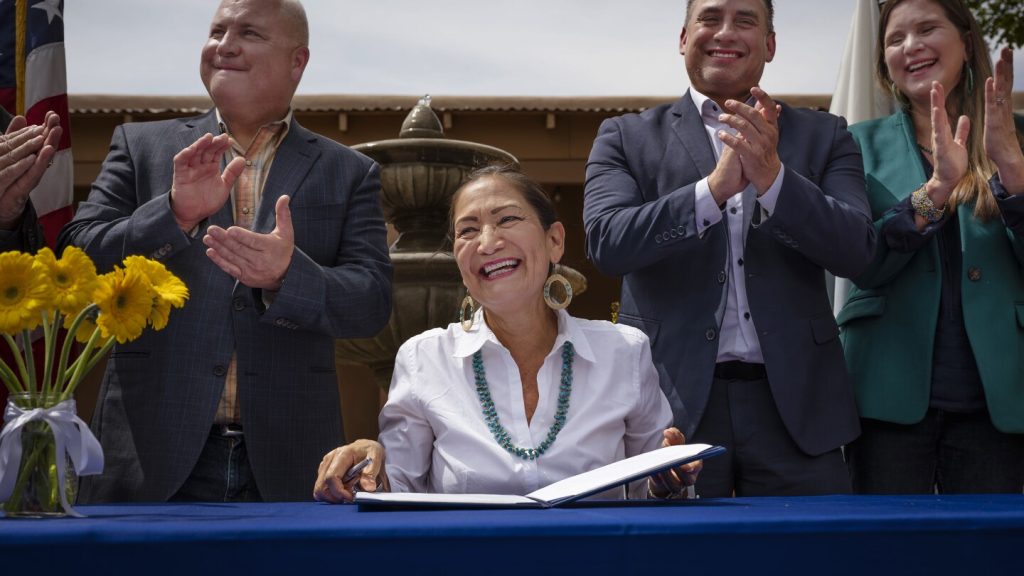The Biden administration has finalized a new rule for public land management that aims to prioritize conservation alongside extractive industries like oil drilling and grazing. The rule from the Interior Department’s Bureau of Land Management will allow public property to be leased for restoration, similar to how oil companies lease land for drilling. It also promotes the designation of more “areas of critical environmental concern” to restrict development on land with historic, cultural, or wildlife significance. The changes are meant to restore balance to how the government manages public lands, according to Interior Secretary Deb Haaland.
Environmentalists have welcomed the changes as long overdue, emphasizing that conservation has always been a vital use of public lands. However, Republican lawmakers and industry representatives have criticized the rule as favoring conservation over mining, energy development, and agriculture, which they argue goes against the “multiple use” mandate for Interior Department lands. The National Mining Association has expressed concerns that the rule will obstruct responsible mining projects by elevating restoration leases to a position of prominence. The adoption of this rule is part of a series of new regulations from the Biden administration as the Democrat seeks reelection later this year.
The Bureau of Land Management oversees around 10% of all land in the U.S., making it a key player in debates over development on public property. Wyoming Senator John Barrasso, a vocal Biden critic, plans to introduce legislation to repeal the public lands rule, claiming that it would hinder access to areas crucial for mineral production, grazing, and recreation in his state. However, supporters of the rule, including Democratic Rep. Raul Grijalva, argue that protecting public lands has widespread support among the American people. They believe that oil, gas, and mining companies have had too much influence over public lands for too long.
The rule will allow for restoration leases on public lands, which can benefit ranchers and other users by enabling them to work with private organizations to improve habitats and address invasive species. Conservation leases, now referred to as restoration leases in the final rule, aim to offset damage done by companies on government-owned properties. Bureau Director Tracy Stone-Manning has highlighted the need to address climate change and development challenges, emphasizing that conservation can coexist with other activities like grazing and drilling. The Biden administration’s approach to public land management diverges from the pro-fossil fuel stance of the Trump administration, with Biden suspending new oil and gas leasing upon taking office before eventually reinstating the deals to secure support for the 2022 climate law.


